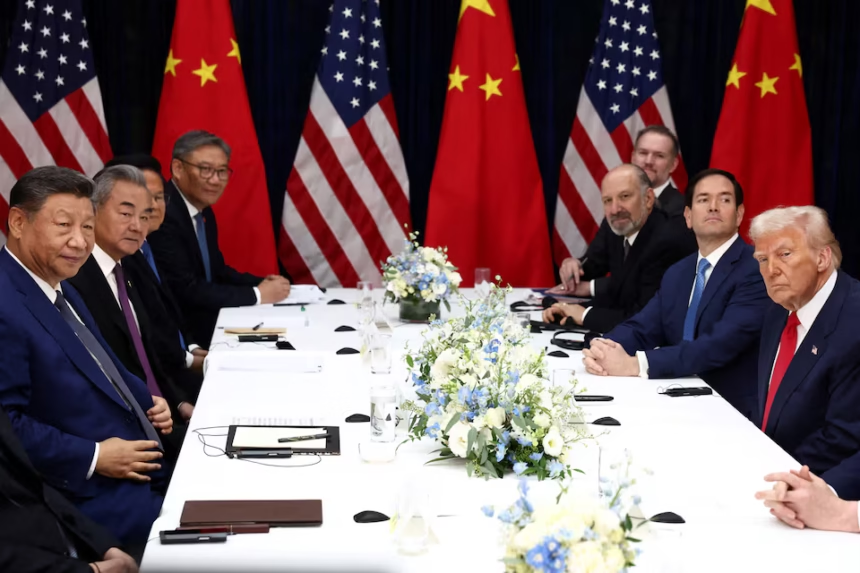In a major shift in U.S.-China trade policy, President Donald Trump announced a reduction of tariffs on Chinese imports from 57% to 47%, following a high-profile meeting with Chinese President Xi Jinping in Busan, South Korea.
The agreement marks a temporary truce in the long-running trade war and includes Beijing’s commitment to curb the illicit fentanyl trade, resume U.S. soybean imports, and pause new export restrictions on rare earth minerals — crucial elements for industries like automotive, aerospace, and defense.
Trump described the meeting as “amazing,” rating it “12 out of 10,” and said that Xi had agreed to work “very hard to stop the flow” of fentanyl, a synthetic opioid that remains the leading cause of overdose deaths in the United States.
Key Points of the Trump–Xi Agreement
- Tariffs Cut: U.S. tariffs on Chinese imports will drop to 47%, with a 10% reduction applied to tariffs related to fentanyl precursor drugs.
- Fentanyl Crackdown: China pledges to intensify efforts to stop illegal fentanyl production and exports.
- Rare Earths: Beijing will pause export curbs on rare earth elements for one year.
- Agricultural Purchases: China will buy 12 million metric tons of U.S. soybeans by January and 25 million tons annually for the next three years.
- Technology and Trade: Washington will delay for a year new restrictions that would have barred Chinese companies partially owned by sanctioned entities from accessing U.S. technology.
Muted Market Reaction and Expert Caution
Despite the significance of the deal, global stock markets reacted cautiously, with analysts calling the agreement a short-term reprieve rather than a long-term solution.
“This is transactional relief — not a structural reset,” said Craig Singleton, senior China fellow at the Foundation for Defense of Democracies. “Nothing fundamental changed, and tensions could easily reignite.”
U.S. Treasury Secretary Scott Bessent confirmed that the deal also involves Chinese approval for bringing TikTok under U.S.-controlled ownership, as well as expanded purchases of U.S. oil and gas.
However, Senate Democratic Leader Chuck Schumer criticized Trump, saying on X (formerly Twitter): “Trump folded on China.”
A Fragile Truce with Deeper Tensions
While both leaders described the meeting as “constructive,” analysts warned that deep-rooted issues — including technology restrictions, Taiwan, and strategic competition — remain unresolved.
Notably, Trump confirmed that Taiwan and Nvidia’s AI chip restrictions were not discussed, signaling that core geopolitical and tech tensions remain untouched.
Trump also announced plans to visit China in April 2026, ahead of hosting Xi in the United States later that year.
The agreement, while easing trade tensions for now, leaves open the possibility of renewed confrontation between the world’s two largest economies.







